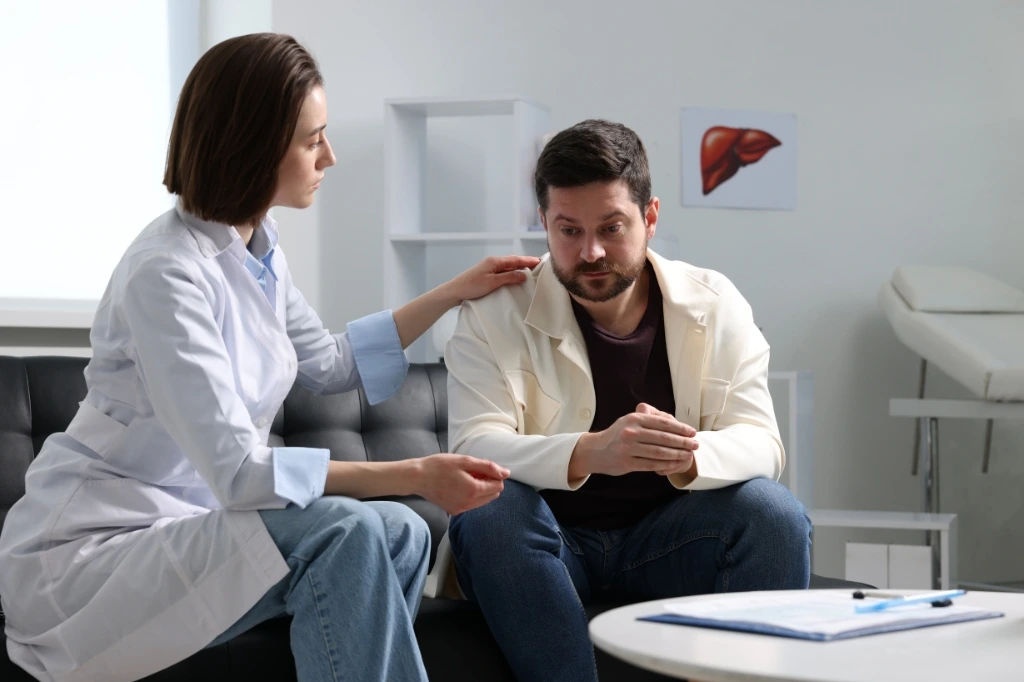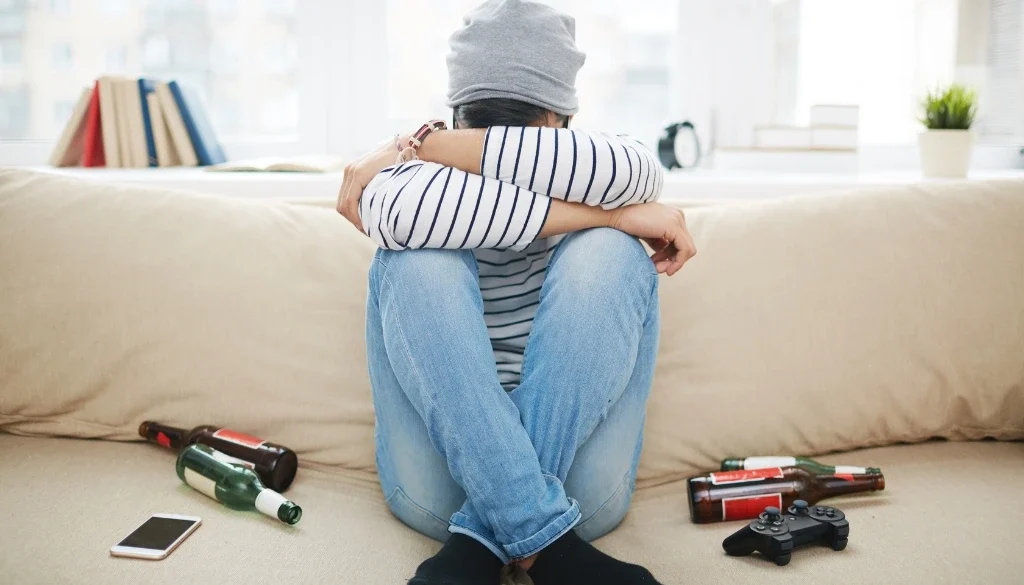How Psychiatrists Help in Addiction Recovery
Addiction isn’t merely a bad habit; it’s a serious mental health condition that disrupts normal brain function and affects emotions and behavior. Addiction is not confined only to alcohol, drugs or prescription medicine – each form influences how the brain works, which makes it more difficult for individuals to stop, even when they know they need to.
Psychiatrists play an essential role in helping people recover from addiction. They address not only the symptoms, but also assist the patient in understanding the origins of addiction, its effects on the body and mind, and the necessary steps to achieve long-term recovery.
At Lifeline Clinic, we aim to provide psychiatric care which assists clients with safe and caring recovery from addiction, attaining health, confidence, and control over their lives.
Understanding Addiction: A Medical and Psychological Issue
Addiction is commonly perceived as a lack of willpower, but it is actually a chronic medical illness. It causes changes in brain chemistry that influence decision-making, motivation, and impulse control. Over time, the brain becomes dependent on the substance or behavior to function normally.
Psychiatrists are trained to view addiction as both a biological and psychological disorder, meaning treatment should address both the mind and the body. Their goal is to pinpoint the underlying causes of stress, trauma, depression, anxiety, or genetic vulnerability and devise a personalised treatment strategy.

The Role of a Psychiatrist in Addiction Treatment
When someone begins addiction treatment, a psychiatrist is often the first professional they meet. Typically, the process starts with an in-depth assessment of the patient’s history with substance use, emotional state, and medical history. Then the psychiatrist:
- Diagnoses the type and severity of addiction.
- Identifies any concurrent mental health conditions, such as anxiety or depression and bipolar disorder.
- Develops a comprehensive treatment plan that incorporates therapy and medications as well as holistic lifestyle support.
This way of doing that provides recovery that targets the purpose of addiction instead of just the symptoms.
Medication Assisted Treatment (as Needed)
Some individuals will require temporary medication to manage withdrawal symptoms, alleviate cravings, or stabilise their mood. Psychiatrists in the treating program make sure the medication is a safe option to help with recovery.
Common examples include:
- Anti-craving medications for alcohol or opioid dependence.
- Antidepressants or anti-anxiety medications to support mental balance.
- Sleep stabilisers to help restore healthy rest patterns.
Medication is never used as a shortcut; it’s one part of a structured recovery plan designed by an experienced psychiatrist in Dubai for addiction and supported by counseling and therapy.
Therapy and Counseling in Addiction Recovery
Overcoming addiction is more than going through detox for drugs or alcohol. It focuses on acquiring new techniques for regulating emotions, developing self-worth, and reducing future incidents or occurrences. Whenever psychiatrists deliver therapy, including psychotherapy, it is often in close collaboration with the psychologist/therapist, including:
- Cognitive Behavioral Therapy (CBT) – helps patients identify and change negative thought patterns.
- Motivational Interviewing (MI) – builds internal motivation to stay committed to recovery.
- Family Therapy – helps loved ones understand addiction and support the healing process.
Psychiatrists implement a holistic method to address bodily dependence and psychological healing by providing therapy in addition to their treatment – the two components create the foundation of successful recovery from addiction.

Dual Diagnosis: Managing Addiction and Mental Health
Many people who struggle with addiction also have mental health issues like despair, anxiety, or trauma. This is known as dual diagnosis. A key advantage of seeing a psychiatrist is that they can treat both conditions together. Ignoring one often makes the other worse; for example, untreated anxiety can trigger relapse, while substance use can deepen depression.
By balancing both mental health and substance dependence, psychiatrists give patients a genuine chance at long-term recovery.
Building a Personalised Recovery Plan
No two people experience addiction in the same way, so treatment should never be one-size-fits-all.
Psychiatrists at Lifeline Clinic design personalised recovery plans that may include:
- Comprehensive evaluation and diagnosis
- Medication management, if appropriate
- Individual and group therapy
- Relapse prevention techniques
- Lifestyle and wellness support (nutrition, exercise, sleep, mindfulness)
The aim of this program is not only to help individuals stop using substances, but also to help them restore their lives in all domains, including work, relationships, health, and self-confidence.
Addiction Recovery is a Journey
Recovery is not a single event: it is a process that unfolds in stages:
- Acknowledgment: Recognising there is a problem.
- Detoxification refers to the medically monitored process of removing toxic agents from the body in a safe manner.
- Treatment indicates addressing the psychological and behavioral factors relating to addiction.
- Rehabilitation is the process of rebuilding a healthy lifestyle and developing effective coping strategies.
- Maintenance is the long-term treatment and support to prevent relapse.
Psychiatrists guide patients through each of these steps, providing medical oversight, motivation, and emotional support. Their professional expertise guarantees a recovery that is safe, sustainable, and personalised to the individual.

Why Lifeline Clinic
At Lifeline Clinic, our entire psychiatry department combines clinical skill with compassion to create an environment that encourages individuals to reach out for help. We aim to provide a safe, confidential, and non-judgmental environment in which healing can begin.
Here’s why many consider our specialists among the best psychiatrists in Dubai for addiction:
- A multidisciplinary team combining psychiatry, psychology, and counselling.
- Evidence-based therapies and safe medication protocols.
- Individualised care focused on long-term recovery.
- Respectful and empathetic communication with patients and their families.
Whether you’re taking your first step toward addiction treatment in Dubai or continuing your recovery journey, our psychiatrists and therapists are here to help every step of the way.
Life After Recovery: Staying Strong
Recovery doesn’t end when the treatment program does. The weeks and months following treatment are crucial, as patients reintegrate into their everyday lives. Psychiatrists offer follow-up psychotherapy sessions to help their patients manage stress, prevent relapses, and improve their mental wellness.
By utilising therapy, mindfulness, and socio-community support, the patients in the program are learning to support each other in rebuilding their confidence and their relationships, and it is evident that recovery from addiction is not just about not drinking and using substances; it is about having a clearer view of your life and having a deeper strength.
Final Thoughts
Addiction recovery is a journey of courage, self-discovery, and resilience. With the proper guidance and care, it’s absolutely achievable.
Psychiatrists play a central role in this process, helping individuals understand their triggers, manage their emotions, and develop healthier coping mechanisms to live more effectively.
If you or someone you care about is struggling with addiction, reach out to Lifeline Clinic today. Our experienced mental health professionals provide compassionate, confidential addiction treatment in Dubai, empowering you to take back control and begin a new chapter of recovery and hope.




